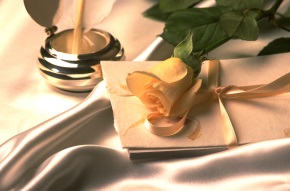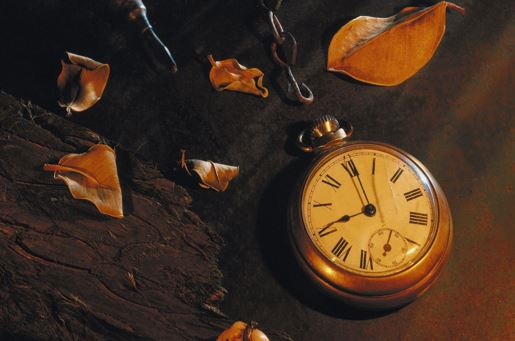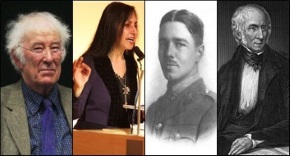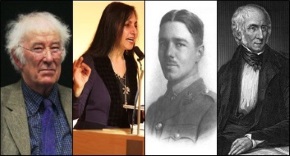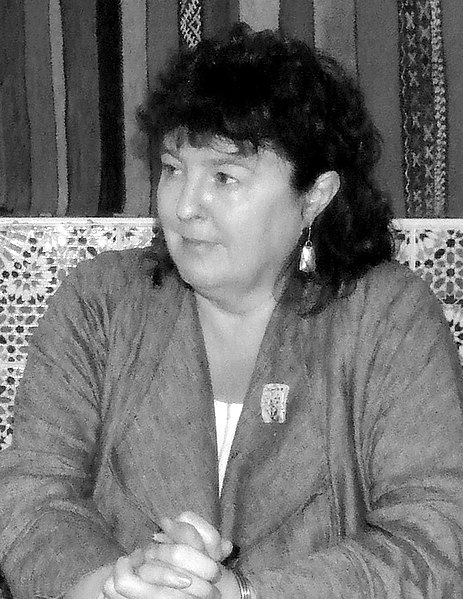
Duffy, Carol Ann
Carol Ann Duffy, the first female poet laureate, is one of the most distinctive voices of British poetry in modern times, but at the same time one of the most diverse in her use of form, style and treatment of subject matter. Her style has markers that seem to announce her presence, particularly in her extensive use of the dramatic monologue form. Technically, we instantly recognise her brief, neurotic, metrically lengthening lists, or her mastery of the sudden rhyming linking analogy (‘syllables of her name / Beauty is fame’), or her use of punchy internal rhyme in close succession. All these things are unmistakably Duffy, but, more importantly, her subject matter is treated with a humane sympathy and a sense of resignation to history. Duffy rejected theories of poetry regarded as luxuriant (‘words like plash’) or indulgent for a sharper and more marked style, enabling a moral and political authority to shine through.Duffy entered the national consciousness as early as the mid 1990s when her work first found its way onto exam syllabi, but it may have been The World’s Wife (1999) that brought her into the centre of the nation’s consciousness. Its dramatic monologues tirelessly give life to unheard voices of women connected to famous men, pointing out sharply their indulgence, vanity and pomposity – including Eurydice longing not to be rescued from the underworld.
However, the following text, Feminine Gospels, abandons any sense of relationships with men as key reference points: these are female voices independent of a male counterpoint. They are mythical, and very often underpinned by a sense of a female overview of history and the question of whether, and how, progress has been made. ‘History’ from this collection presents a bleak assessment of this through its neglected and moribund main character. This movement to some extent also reflects the change of focus within feminism from concern with patriarchy to the third-and-fourth wave interest in more specifically feminine types of experience, and this can also be seen in Duffy’s narrative poem ‘The Laughter of Stafford Girls’ High’, which charts the progress of feminism historically and concludes looking at the outcomes of its individual characters’ stories. Feminine Gospels concludes with perhaps an unexpectedly personal and elegiac set of poems reflecting on bereavement and loss, and her work then continues to become more personal with the collection of love poems, Rapture, from 2005, which reflects on a difficult love affair.
Schools play a special part in her poetry, sometimes exploring strong memories underpinned with important themes, as in ‘Mrs Tillscher’s Class’ (1990), and Duffy often demonstrates a strong awareness of different attitudes to teaching new poetry, as the satirical ‘Head of English’ shows. Duffy’s friend U A Fanthorpe had been a schoolteacher, for whose death Duffy dedicated her poem ‘Premonitions’.
Duffy’s poetry adopts remarkably diverse speaking voices, including that of a disaffected sociopath, the Mother of God, Penelope, and an unborn baby. Duffy’s poetry has always had a trenchant quality that connects it to the lived experience and challenges of her readership as well as to mythological content and philosophical questions, and she has stated that ‘in every poem I am trying to reveal a truth’. When she was made Poet Laureate in 2009, it was, for many people, high time.
© ZigZag Education 2026: content may be used by students for educational use if this page is referenced.
Show / hide details
| 1955, 23rd December |
Born in The Gorbals, Glasgow
|
|
| 1967–1970 |
Attends Stafford Girls’ High School
|
|
| Approx. 1971 |
Meets and starts a 12-year relationship with the popular Liverpudlian, or ‘Mersey’, performance poet Adrian Henri
|
|
| 1977 |
Honours degree in Philosophy from Liverpool University |
|
| 1983 |
Wins the National Poetry Competition
|
|
| 1995 |
Birth of daughter
|
|
| 1996 |
Moves to Manchester – reconnects with childhood; starts to lecture on poetry at Manchester Metropolitan University
|
|
| 1999 |
Publishes The World’s Wife, including many satirical poems in the voice of female characters associated with famous, and often pompous, male figures
|
|
| 2002 |
Publishes Feminine Gospels
|
|
| 2005 |
Rapture, Duffy’s collection focused on an intense love affair, wins the T S Eliot Prize
|
|
| 2008 |
A British exam board is accused of censorship after it removed Duffy’s poem ‘Education for Leisure’ from its syllabus due to claims it could encourage knife crime. Michael Rosen points out that on this basis we would also be banning Romeo and Juliet.
|
|
| 2018 |
Publishes Sincerity, her last collection as poet laureate
|
Acknowledgements
Photo credit: Carol Ann Duffy




